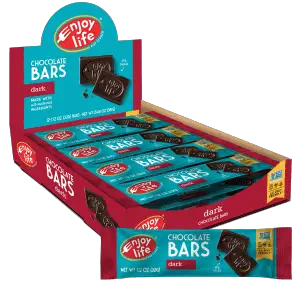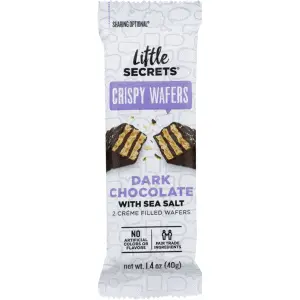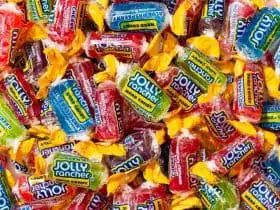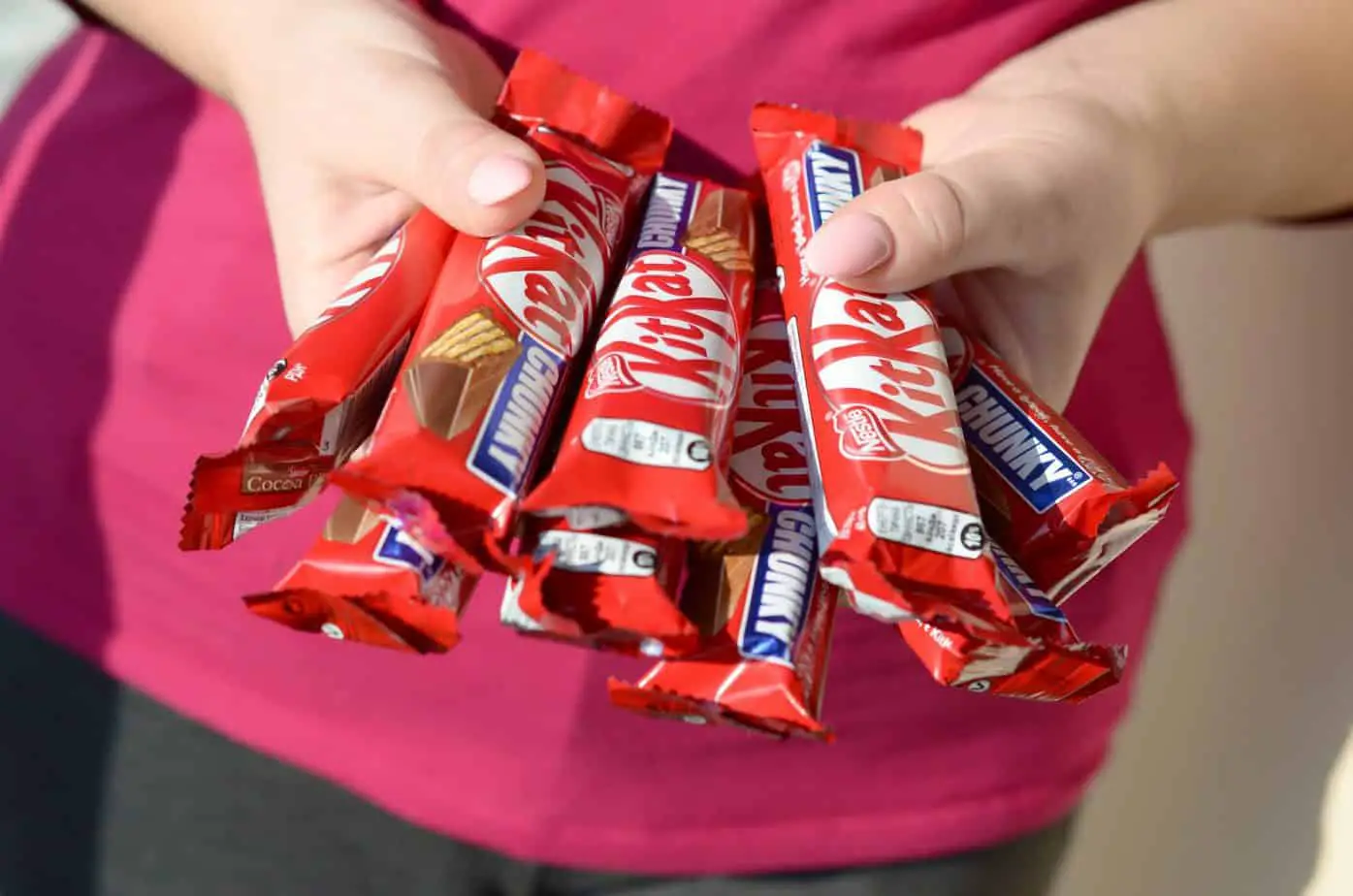Kit Kat is probably everyone’s favorite chocolate bar. The crunchy wafer interior and the thick chocolaty exterior are incomparable. The chocolate’s popular slogan holds true as far as we know it. ‘Take a break, have a Kit Kat’ because the brilliance of this chocolate is quite refreshing and you never get tired of its exquisite taste.
When you adopt a responsible vegan lifestyle, you ought to analyze everything you consume so that there is no compromise in your promise. Vegans are emotionally and practically sound people that choose to consume only those products which don’t cause cruelty to animals. Along with this, vegans are extremely concerned about the environment and they understand the cost of taking the planet for granted.
Kit Kats may be the richest chocolate when it comes to taste, but are Kit Kats vegan? Unfortunately, they are not. There are a few problematic ingredients in Kit Kat that’ll make you leave it behind.
So, are kit kats vegan? Kit Kats are not vegan

It is as true as it sounds harsh. Kit Kats are not vegan. These delicious chocolate bars contain some not-wanted ingredients that vegans cannot tolerate. One amongst such ingredients is full cream milk powder. The other problematic ingredients are soy lecithin, sugar, natural flavors, and milk chocolate. Kit Kats of different varieties in different countries may contain even more non-vegan ingredients.
The presence of milk in Kit Kats make it unsuitable for vegans
It is known that a standard Kit Kat consists of 76% milk chocolate. All milk chocolate doesn’t need to be non-vegan. Rice milk, almond milk, coconut milk, and soy milk is often present in vegan foods. But the milk in Kit Kat chocolates is derived from dairy. It is certainly not vegan.
You may come across a small number of vegans that claim to be lacto-vegans or vegans who drink milk. Let me tell you, there is no such thing as lacto-vegan, you are a vegetarian.
Vegans do not eat any food that results from animal-cruelty. Milk is obtained from the exploitation of cows because they produce milk only for their young. Human beings derive the calves of their essential nutrition by forcing them away from their mother’s milk. The calves are often diverted to the beef industry. The male calves are especially unwanted in dairy farms.
It is sad how little calves are separated from their mothers at a very young age. Worse than that, they are often killed. A similar thing happens with the cows that run dry or stop producing milk when they get old. Capitalist farm owners see no profit in these animals and don’t consider feeding them. Such cows are either abandoned, killed, or given away to meat and leather factories.
This is not all. Cows in the dairy farms are administered hormones artificially so that they keep producing milk even when they haven’t been pregnant. This gravely affects the health of these animals which have been turned into mere objects for the insatiable human greed.
Such gross brutality, inhumanity, and cruelty can never be tolerated in veganism. Milk and all other dairy products are as unacceptable in veganism as meat and eggs.
Because Kit Kats contain milk, they are unsuitable for vegans.
Do Kit Kats contain gelatin?
When something has an incomparable taste, there occur numerous doubts. It is common for manufacturers to add unacceptable ingredients behind the curtain. Vegans remain especially more alert in such circumstances.
Anyway, despite the popular notion, Kit Kats do not contain gelatin. The peculiar texture of Kit Kat has driven many hoaxes around the popular chocolate. People in a few countries believe that Kit Kat contains horse and cow’s meat. While this is not true, the origin of the rumors is understandable.
The makers of Kit Kat probably take this as a compliment because people are so bewildered by their taste that they go to any lengths to describe it. Although, it is not uncommon for food to contain gelatin or meat substances for that matter.
If you aren’t aware, gelatin is a proteinaceous material made after boiling animal bones, skins, ligaments, and tendons in water. This problematic substance exists and is very commonly used in food items to provide aeration. Gelatin makes food chewy, soft, and fluffy without alternating its taste.
It is a shame that such materials are used even when vegans substitutes are easily available. Pectin is a plant-derived substance that works just as effectively as gelatin. We hope we don’t see gelatin in any food someday.
Is soy lecithin not vegan?
Lecithin is a popular emulsifying agent used in foods. While it is possible to obtain lecithin from soy and sunflowers, it is common for manufacturers to obtain lecithin from animal fats. This ingredient has often been looked down upon by the vegan community for its controversial nature.
It is advisable to trust the manufacturers when they mention that their lecithin is obtained from soy because it just might be. Avoiding soy lecithin would only narrow down our food choices without making as much impact on veganism.
How are natural flavors controversial?
The FDA mentions that natural flavors can be obtained from all plant and animal-based sources which are edible. Under such circumstances, flavors in apparent plant-based food could be obtained from animals.
This is indeed a common occurrence. Strawberry and raspberry flavors are very commonly enhanced by the addition of a ‘natural flavor’ obtained from the anal glands of beavers. Many such problematic flavors could be a part of your food.
Since it is not known which natural flavors are present in Kit Kat, they could be assumed to be animal-derived. However, vegans wouldn’t go that far because Kit Kat already contains dairy.
Otherwise, when it isn’t known which natural flavors are incorporated in a product, vegans should take the responsibility of asking the manufacturers about the same.
How problematic is sugar?
Sugar is often considered problematic in vegan foods. Strict vegans choose to eliminate sugar from their diet. While this is not necessary, it is often considered important.
Vegans have a problem with the bleaching process most commonly used by sugar factories in America. The sugar derived from cane is originally brown. In order to remove the impurities and render an acceptable light color to the sugar, it is filtered with a substance known as bone char.
Bone char is a problematic substance that drives strict vegans away from sugar. It is made by burning animal bones at very high temperatures. There are doubts regarding how these bones are procured. Bone char is typically made out of the bones of dead animals. No animals are actively killed for making bone char. It is also true that bone char is not passed into the final refined sugar.
> Read more: is sugar vegan?
However, vegans find the process problematic and do not want to consume anything close to animal-products. This is understandable. But so much sugar in America is also filtered using other processes. One such process utilizes granular activated carbon which is an entirely vegan substance.
A large portion of sugar in America is also obtained from beetroot and is naturally white. This eliminates the use of bone char or any other filtering substance.
Since all sugar is not bleached using bone char, it is impractical to avoid all products that contain sugar. Vegans should not stop consuming sugar altogether because it may as well be vegan.
Kit Kats are not vegan, but vegan alternatives of Kit Kats exist
If you are a vegan and the loss of Kit Kats to the endless list of non-vegan foods seems huge, you have good news. Vegans alternatives to Kit Kat exist and they taste just as delicious.
Enjoy Life Chocolate Bars

Have a look at this verified vegan, gluten-free. And GMO-free chocolate bars that taste just as awesome as Kit Kat and don’t contain any non-vegan ingredients.
Little Secrets Crispy Wafers Dark Chocolate

Little Secrets is a clean label chocolate company that does not use any artificial ingredients or flavors in its products. Their vegan dark chocolate resembles Kit Kat with an additional sea salt topping.
Unlike Nestle and Hershey’s, Little Secrets chocolates do not depend on child labor in the African subcontinent. The workers in their factories are protected by fair trade regulations.
The world is shifting towards healthier eating choices and Little Secrets ‘better for you’ versions of chocolates are being promoted worldwide by Forbes.
So Is Kit Kat Vegan?
No. Kit Kat is not vegan. Nestle is creating vegan alternatives for some of their food products and we’d hope to see a vegan version of Kit Kat. But right now, no version of the existing Kit Kat is vegan.
The presence of milk is the sole reason that Kit Kat is not acceptable for a vegan diet. There are no other direct animal-based ingredients in Kit Kat.
Right now, Kit Kat should take a break from the list of vegan foods.












Leave a Reply